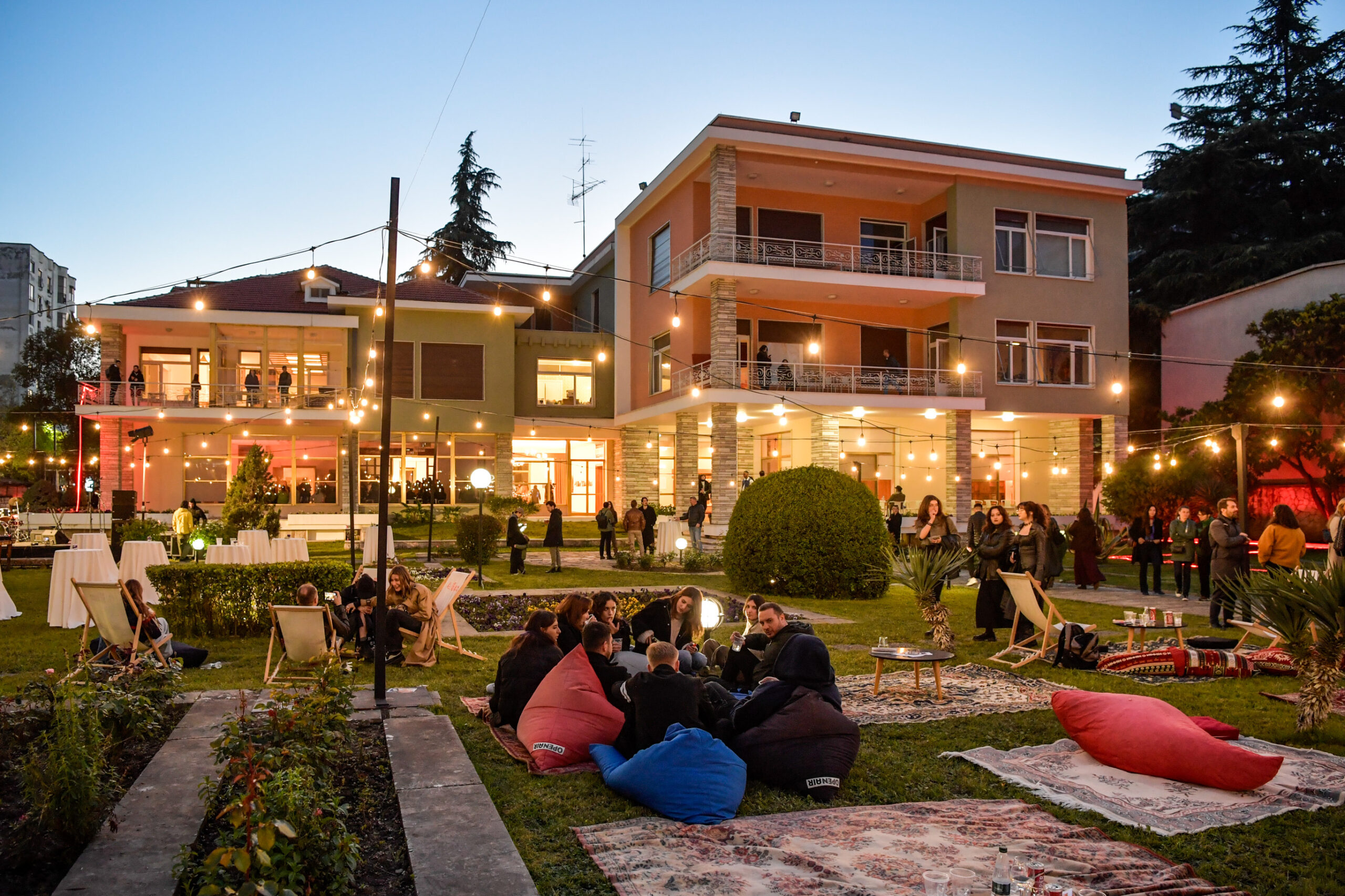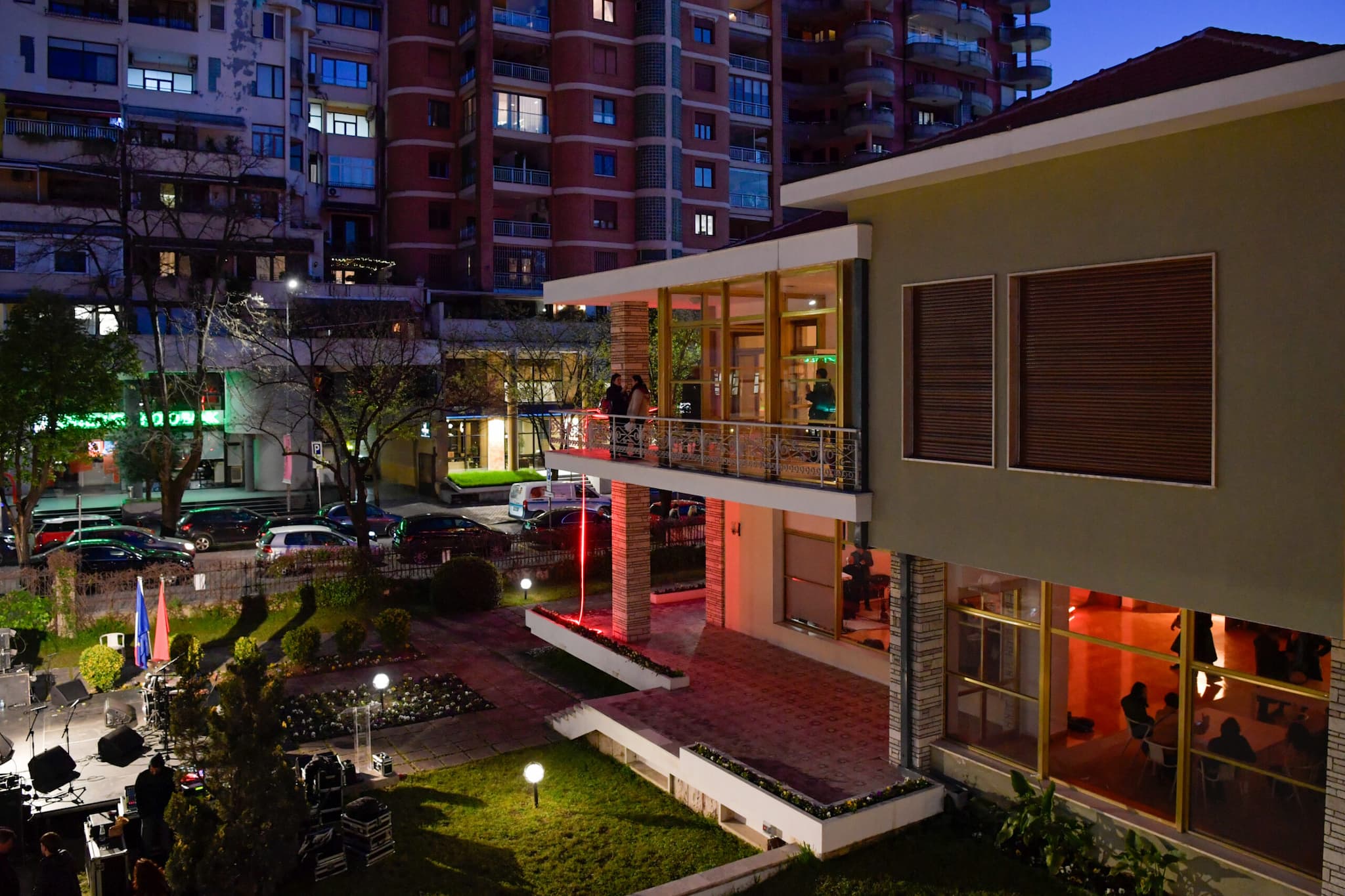
Inside Hoxha’s villa
A dictator’s home, where history was made and unmade.
|2025.05.06
|
Hoxha saw enemies lurking everywhere, including among his closest collaborators, a paranoid style that has left its mark in Albanian politics.

Villa 31 was built to accommodate younger generations of the Hoxha family. Photo: Atdhe Mulla © Vila 31 x Art Explora
“He had a personal pool?!” came a woman’s voice from the narrow hallway. “While Albanians were starving!”

Villa 31 featured a private swimming pool, an extreme luxury for the time. Now, the pool has become a venue for artists. Photo: Atdhe Mulla © Vila 31 x Art Explora

The Hoxha family used a Czechoslovak radio/record player. Ordinary Albanians found to be listening to Western radio stations could get in trouble with the state. Photo: Elidor Mëhilli
Faced with the idea of power as a conspiracy, Albanians have always engaged creatively with pain — long before they became the subject of Western interest and mass tourism.

Tirana’s Blloku neighborhood, and the city as a whole, have changed dramatically since the days that the Hoxha family lived in Villa 31. Photo: Atdhe Mulla © Vila 31 x Art Explora
But the past is demanding; it is not done making its claims.

Elidor Mehilli
Elidor Mëhilli is associate professor of history, public policy and human rights at Hunter College and the Graduate Center of the City University of New York, and an affiliated faculty with the Harriman Institute at Columbia University. His award-winning work is on dictatorships, authoritarian regimes and the diplomatic, economic, political and cultural dimensions of the Cold War. He received a PhD from Princeton University.
This story was originally written in Albanian.
Want to support our journalism? Join "HIVE" or consider a donation.